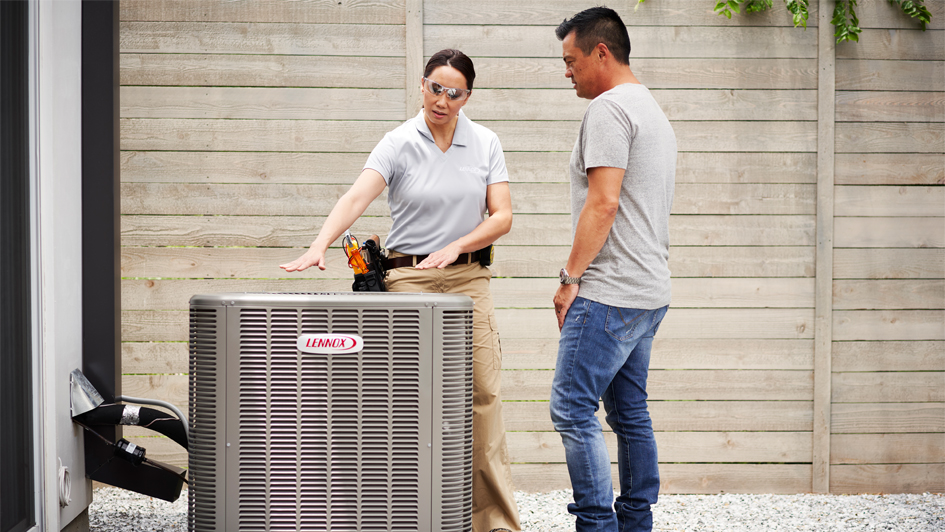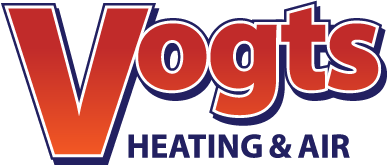
Finding the right HVAC system size for your home is vital. It has a big impact on your ability to enjoy your home and your utility costs. In this HVAC sizing guide, the specialists at Vogts Heating & Air will explain how to determine the correct size of heating and cooling system for your home, what features they take into account and why picking the ideal size HVAC is so important to your comfort.
What Impact Does HVAC System Size Make on Home Comfort and Efficiency
Proper HVAC size differs for each home. Your HVAC system needs sufficient heating and cooling capacity to make your entire home comfortable. It shouldn't have to work extremely hard to keep up in extremely hot or cold weather. However, an HVAC system that's oversized is inefficient, increases your energy expenses and can lead to complications that make your home less comfortable.
Critical Factors Professionals Consider for HVAC Sizing in Pocatello, ID
To select the correct HVAC system size for a home, the HVAC installation specialists at Vogts Heating & Air conduct a Manual J load calculation to determine how many British Thermal Units (BTUs) are required to heat and cool and the home. A Manual J calculation evaluates multiple elements, such as:
- Size of the home: The size of the home is arguably the most important factor in picking the size of your HVAC system. How much space will your new HVAC system need to heat and cool?
- Home insulation: A fully insulated home retains the indoor temperature better, which can affect how much heating and cooling power you require.
- Local Weather: The local climate in Pocatello, ID, plays an important role in identifying the correct size HVAC. Homes in warmer climates may require a system with an increased cooling capacity, while cooler regions may require less.
- Number of windows: Windows can be a major source of energy loss. The number, dimensions, type of glass used, and whether they’re single paned or double pane can significantly impact heating and cooling requirements.
- Sun and shade: A home that receives a lot of sunlight will naturally be warmer than one that doesn't, which influences central air sizing. Orientation in relation to prevailing winds and number of nearby shade trees also impact the correct HVAC size.
Most Common DIY HVAC Size Mistakes
A frequent mistake homeowners make when determining the size of their HVAC system is to rely solely on square footage. Although the square footage of your home has a big impact on what size HVAC you need, other factors also influence how much heating and cooling capacity is necessary to keep your home comfortable.
Another typical mistake is not hiring a professional. It's essential to have a qualified HVAC technician perform a Manual J calculation, which takes all the essential factors into consideration to find the right HVAC size.
Why Does HVAC System Size Matter?
An incorrectly sized system can result in comfort problems and increase expenses. Here's a closer look at the pitfalls of a incorrectly sized HVAC:
Undersized HVAC system problems:
- Reduced lifespan and breakdowns: HVAC systems that are too small often operate continuously to strive to maintain the temperature in a home, leading to excessive wear and tear. This can result in breakdowns and even require premature HVAC replacement.
- An unpleasant home: Small HVAC systems don't have enough power to heat and cool your whole home, which can cause hot, stuffy rooms or areas of your home that are chilly and uncomfortable.
- Increased energy expenses: An underpowered HVAC system that operates nonstop trying to keep up uses more energy, driving up your monthly power bills and wasting your hard-earned money. A properly sized and energy-efficient HVAC system consumes less energy and helps to reduce your monthly bills.
Issues from oversized HVAC systems
- Unnecessary expenses: Larger HVAC systems are usually more costly, so investing in more heating and cooling capacity than your home needs is an avoidable expense.
- Shorter system life and breakdowns: HVAC systems that are too big often cycle on and off, referred to as short cycling. This can cause wear and tear on your machine, reducing its service life or requiring HVAC repair.
- Excessive indoor humidity: An HVAC system should regulate indoor humidity, but an oversized HVAC system may lack adequate runtime to accomplish that task. This can lead to indoor air quality issues, such as mold growth.
Get Professional HVAC Sizing and Replacement by Working with Vogts Heating & Air
Now that you know some of the factors that influence what HVAC system size is right for you, it's time to find a new heating and cooling system. Vogts Heating & Air is here to help.
We’ll evaluate your home and provide you with a free, no-obligation estimate for HVAC installation. We’ll assess your home to find the most suitable HVAC system size for you, so you can enjoy a cozy environment every day of the year.
Call 208-621-0129 today to schedule your free estimate for HVAC installation in Pocatello, ID.
